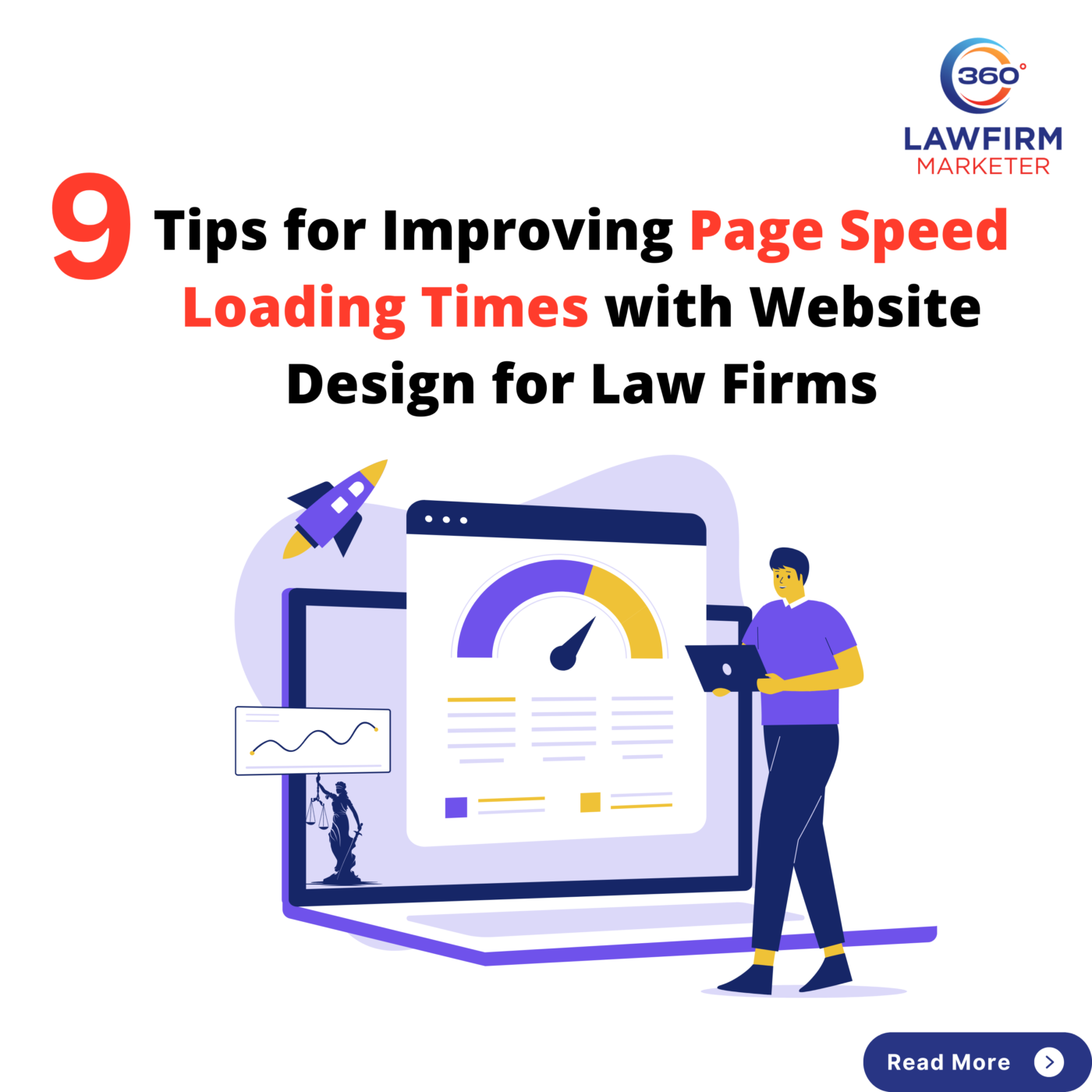9 Tips for Improving Page Speed Loading Times with Website Design for Law Firms

1. Make Sure Your Hosting Solution is Optimized for Performance
The hosting provider you use can make a big difference in load times. Don’t settle for a mediocre hosting option to save some money. It will hurt your performance over time. Look for a powerful platform that’s designed to help with speed.
2. Compress Images
Images can really help to enhance website design for law firms, but they should be optimized. Large images will delay loading times. Tactics like changing file formats, enabling lazy loading, and compressing images through lossy or lossless compression can all be beneficial. There are a variety of tools that you can use for this purpose, but the important thing is to check all of your images for their impact.
3. Limit Your Redirects
Too many redirects on your website can ultimately hurt performance. Any time a page redirects to another one, it prolongs the HTTPS request. Redirects will always be necessary sometimes, but looking for and eliminating extra redirects is a good practice.
4. Cache Web Pages
Caching is still one of the best tips on website design for law firms. This will store copies of your site’s pages, which reduces the work that a server needs to do to display them. You can do this at the server level, where the host does the work, or you can use a caching plugin.
5. Enable Browser Caching
Another type of caching involves allowing the browser to store a variety of information such as stylesheets, images, and JavaScript files. This means the system won’t have to reload the page every time and things can move faster. You can find a caching plugin to complete this process.
6. Understand Asynchronous Loading
Your site is composed of CSS and JavaScript files that can load synchronously or asynchronously. Synchronously means that files will load one at a time, in the order that they appear on your web page. On the other hand, asynchronous loading enables multiple files to load at the same time, which can really improve your page’s performance. Understanding the difference is key when looking to improve website design for law firms.
7. Minify CSS, JavaScript, and HTML
If you optimize the way your pages load, you will naturally improve page speed. To do so, remove unnecessary spaces, characters, comments, or other elements that you don’t need, in order to reduce the size of files. Decreasing your files’ sizes results in cleaner code and leaner web pages that can load more quickly.
8. Use a Content Delivery Network (CDN)
You may also hear this called a content distribution network, and it’s essentially a network of servers designed to improve page loading speed. This happens when the CDN hosts and delivers copies of your site’s static content from servers located across the globe. A CDN works alongside your host to maximize performance.
9. Get Rid of Unneeded Plugins
Having unnecessary plugins on your site can really slow things down. This is especially true of outdated or poorly maintained plugins. The easiest thing to do is to disable and delete any plugins that you’re not currently finding useful.





